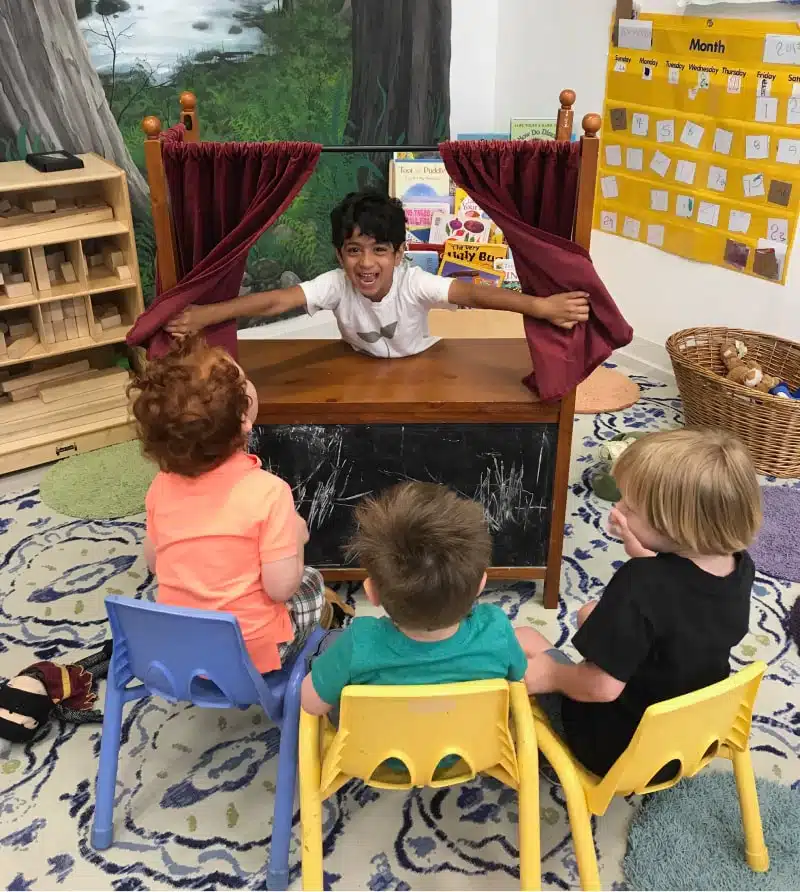Preschool is an important step in getting your child off the right foot in education. However, transitioning to preschool can be a stressful time for your children. Adapting to a new structured environment and being away from parents can create growing pains. Parents may also wonder whether their child is equipped to flourish in a new preschool environment. With that in mind, the team from Bubbles Academy is here to discuss some tips to help your child with preparing for preschool.
The Importance of a Smooth Transition to Preschool
Transitioning to preschool puts your child in a completely new environment with unfamiliar peers and teachers. It is natural for them to experience some level of anxiety over being away from their parents and around strangers.
It is vitally important that parents help ease their child into the new routine. Poor adaptation can negatively affect their child’s mental well-being, socialization efforts, and academic performance. Getting comfortable with their new environment sets your child up to succeed and exceed in a school environment.
Prepping Your Child for Preschool
This requires a whole new level of independence; for your child AND for you!
We want to make sure you are both as prepared as possible to enter this new stage of development, so here are some things that you can do to get your little one ready for preschool! Trust us, your child’s teacher will very much appreciate it!
Make Them Independent
Work toward getting your preschooler-to-be as independent as possible on these self-care tasks:
- Putting on and taking off shoes (and socks!)
- Putting on and taking off coat
- Washing hands (water, soap, scrub, rinse)
- Getting their own tissue and throwing it away
- Following a two or three step set of directions ie: “First, clean up the trucks, then come sit down at the table.”
Personal Hygiene
- Hands and fingers out of mouth and nose (and pants)
- Keeping toys etc. out of mouth
- Covering sneezes and coughs with inside of the elbow
- Proper hand washing after sneezing, coughing or using the bathroom “Water, Soap, Scrub, Rinse”
Phrases To Practice
- ”Help, please!”
- ”Can I have a turn when you’re done?”
- ”No, thank you.”, “I don’t like that”, and “My body is my own.” for encouraging consent and verbal vs. physical problem solving
Mental and Emotional Readiness
Ask them what they are feeling about going to school and if they are scared of anything. You need to be open with your child about emotions so they feel comfortable coming to you if they have any problems.
It is also important for children to learn how to regulate emotions in a shared environment. They must have basic mastery over basic emotional recognition in themselves and others. Not having the right emotional or mental well-being can contribute to greater stress during the transition and impact their academic performance.
Building Awareness of Preschool
It also helps to acclimate your child to the concept of preschool. This includes understanding how to operate in a classroom and what the point of going is. Take time to talk to them about school and what kinds of things they will be doing. If it helps, you can pretend play with your child at home and pretend to be in a school environment, so they understand what to expect when they arrive for their first day.
Getting Acquainted with Their Preschool Environment
Before the first day of the class, you should take your child to the preschool so they can get acclimated to their new space. Most preschools will allow parents to do a walk-through with children. Start by showing them the classroom and introducing them to teachers and aides. The more familiar they are with the preschool, the easier it will be for them to adapt when classes start. Waiting until the very first day to bring them to school can make the transition harder.
Instilling a Positive Approach to Learning
Children are naturally curious, and it’s up to parents and teachers to channel that natural curiosity into a love of learning. There are several ways parents can instill an early love of learning at home, whether it’s introducing them to topics they are interested in or providing hands-on experiences.
The key to cultivating a love of learning in early childhood is to make learning fun. Approaches to learning should initially focus on freeform explorations of topics of interest as you try to determine your child’s preferred learning language.
Additional Read: The Best Preschool Activities for Learning & Development
Establishing a Consistent Routine
One of the hardest parts of preparing for preschool is transitioning to a consistent schedule. You should take time beforehand to establish a daily routine, so your child is used to having structure.
For example, you can set your child up on an “early to bed” and “school wake up” routine a few weeks before school starts. That way, they are used to getting up and getting ready for the day at the same time.
Some parents also like to do a “goodbye” routine to ease their child’s anxiety about being dropped off for the day. It can be a goodbye wave or a more involved ritual. Whatever you choose, the point is to acclimate your child to a structure.
Celebrating Achievements and Milestones
Children are more likely to enjoy the transition to preschool if they receive appropriate celebrations for their achievements. Starting preschool for the first time is a big challenge, and kids deserve praise for their efforts.
Children acclimate better when they have positive reinforcement and a supportive environment at home. For instance, you can have a small celebration for their first week or month in school. Or, you could hang up their projects on the fridge.
Bubbles Academy creates a supportive and nurturing environment to set your child up for a lifetime of learning. If you have any questions about preparing for preschool and play-based learning kindergarten, contact us online or call today at (312) 944-7677.

